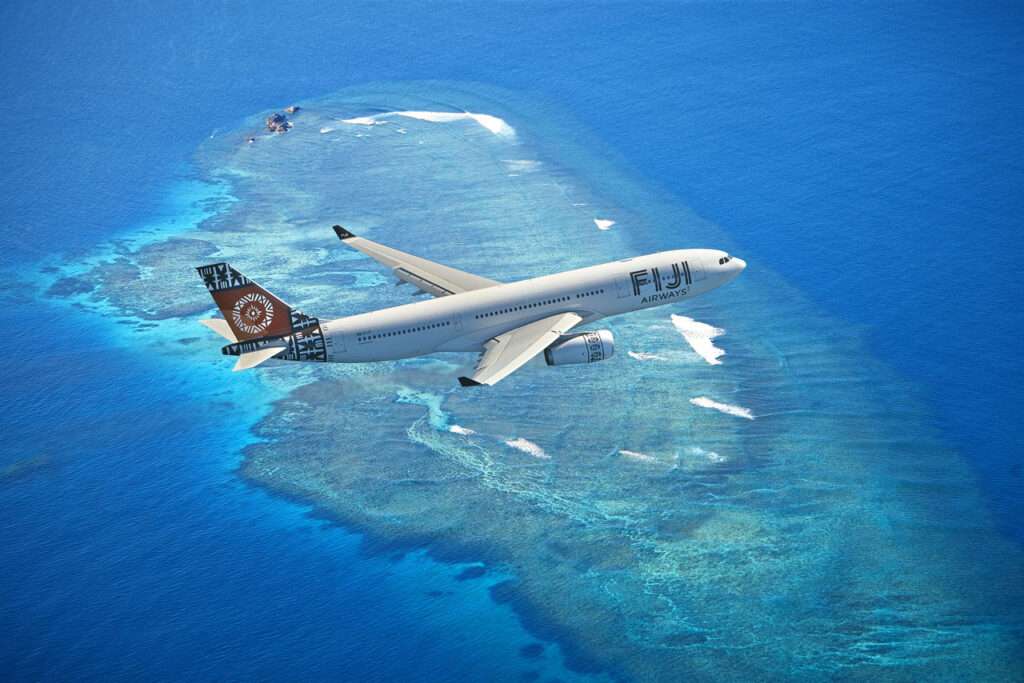The Fiji government has now approved a recommendation to adopt an open skies policy.
Fijian Cabinet has approved the review of the National Aviation Policy to allow for liberalisation of air transport on a case-by-case basis, in the national interest.
The decision is to adopt open skies on a case-by-case basis, and will be based on careful consideration of economic, strategic, and operational factors.
This week, CEO Fiji Airways Andre Viljoen made a presentation to Cabinet on the review of national aviation policy.
Negotiations with US
Cabinet also agreed that negotiations should be held with the United States for an open skies framework.
This arrangement will allow Fiji Airways to evaluate operating direct services between Fiji and other U.S. destinations, as well as one-stop services from Fiji through the U.S. to a third country.
This move could significantly impact the country’s tourism industry and economic development.

What is Open Skies?
An open skies policy is an agreement between countries that liberalizes air travel regulations. Traditionally, governments restricted airlines on routes, pricing, and access to airports.
Open skies removes these restrictions, allowing airlines more freedom to operate flights and compete for passengers.
Potential Benefits for Fiji
Increased Tourist Arrivals: Open skies would likely lead to more airlines flying to Fiji, offering travelers a wider range of choices and potentially lower fares.
This could significantly boost Fiji’s tourism industry, a major source of revenue and employment.
Economic Growth: Increased tourist arrivals translate to higher spending on hotels, restaurants, and activities.
Additionally, open skies could attract new cargo airlines, facilitating trade and economic diversification.
Greater Competition: Such arrangements would foster healthy competition among airlines, potentially leading to better in-flight services and more convenient travel options for passengers.

Considerations and Challenges
In the past, the Fijian government has adopted a cautious approach to the uptake of an open skies arrangement. While open skies offer numerous advantages, there are also some key considerations:
- Impact on Local Airlines: Increased competition from foreign carriers could put pressure on Fiji’s existing airlines. The government may need to implement policies to ensure a fair playing field.
- Infrastructure Needs: An influx of flights might require upgrades to airport infrastructure to handle the additional capacity.
Air Services Agreements (ASA) can vary widely in their terms and conditions. At one end of the scale they can apply significant restrictions on seat numbers and flight movements.
At the other end of the scale, they can be very broad with few caveats or requirements. In 2016, Fiji’s Solicitor-General and Permanent Secretary for Civil Aviation, Sharvada Sharma, warned of the need to “tread carefully” in the case of Open Skies agreements.
Looking Ahead
Fiji’s consideration of an open skies policy reflects a potential shift towards a more liberalized aviation market in the Pacific.
The potential benefits for tourism and trade are significant, but careful planning and consideration of potential challenges will be crucial for a successful implementation.

Click the banner to subscribe to our weekly newsleter.

Click the photo to join our WhatsApp channel so then you can stay up to date with everything going on in the aviation industry!









